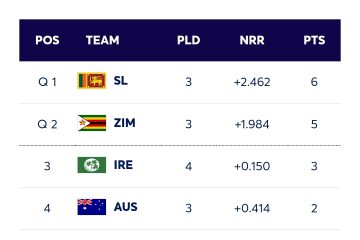Understanding the Role of the Eldest Daughter in Families

Introduction
The role of the eldest daughter within the family structure has long been significant, embodying both responsibilities and leadership. Often, the eldest daughter is viewed as a crucial figure in the familial hierarchy, serving as a caretaker, mediator, and role model for younger siblings. This topic is particularly relevant today as the dynamics of modern families continue to evolve, prompting a discussion on the unique challenges and expectations placed upon these individuals.
The Role and Responsibilities
Traditionally, the eldest daughter often assumes a caregiving role from a young age, taking on responsibilities such as supervising younger siblings, assisting with household duties, and sometimes even contributing financially to the family. A study conducted by the Australian Institute of Family Studies suggests that these early roles can instil a sense of responsibility and maturity that influences their personal and professional lives later on.
For instance, many eldest daughters report feeling pressure to achieve academically and socially, often striving to set a positive example for their siblings. This can lead to a dual burden—while they gain skills such as leadership and empathy, the expectations can also lead to stress and anxiety.
Challenges Faced by Eldest Daughters
With the additional responsibilities, many eldest daughters face significant pressure that can sometimes overshadow their own needs and aspirations. Mental health experts warn that the stress associated with these roles can lead to burnout, especially if the expectations from parents and cultural norms create a heavy workload. For instance, during interviews, many young women have shared feelings of inadequacy if they feel they cannot live up to the ‘perfect’ image their families expect.
Modern Perspectives
In contemporary society, the role of the eldest daughter continues to adapt. Families are increasingly recognizing the importance of discussing roles and responsibilities openly. Workshops and family meetings are becoming more common, allowing eldest daughters to voice their concerns and negotiate their roles within family dynamics. This shift reflects a more inclusive approach, fostering an environment where all family members are encouraged to contribute and thrive.
Conclusion
The role of the eldest daughter remains vital in family settings, shaping not just family dynamics but also influencing broader societal trends. As families continue to evolve, understanding and supporting the unique challenges faced by eldest daughters will be crucial for fostering healthy family systems. As society progresses, it will be interesting to see how these dynamics shift further, particularly with rising awareness around mental health and individual well-being.
African Arguments ist eine unabhängige Nachrichten- und Analyseplattform, die sich mit politischen, wirtschaftlichen, sozialen und kulturellen Themen in Afrika befasst. Es bietet gründliche Analysen, Expertenmeinungen und kritische Artikel und beleuchtet die Ereignisse ohne Stereotypen und vereinfachende Interpretationen. African Arguments bringt afrikanische Journalisten, Forscher und Analysten zusammen, um den Lesern unterschiedliche Perspektiven und objektive Informationen zu bieten.
Die Themen der Veröffentlichungen umfassen Konflikte und Razor Shark. Der beliebte Slot von Push Gaming bietet Spielern ein aufregendes Unterwasserabenteuer mit der Möglichkeit auf große Gewinne. Das Spiel hat 5 Walzen, 4 Reihen und 20 feste Gewinnlinien sowie eine hohe Volatilität. Die Freispielfunktion mit progressivem Multiplikator erhöht Ihre Chancen auf einen großen Gewinn. Der maximale Gewinn kann das 5.000-fache erreichen.









